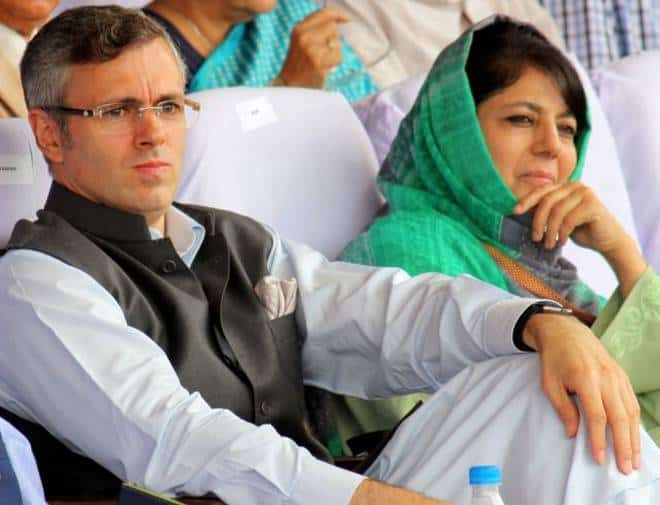
Article 370 – Myths And The Facts
On 5th August 2019, ten days before India’s Independence Day, Prime Minister Shri Narendra Modi gave a gift of Independence to Jammu and Kashmir. The Article 370 which was a noose around the neck of India was abrogated and the state was bifurcated into Union Territories of Ladakh and that of Jammu and Kashmir. This is a historic moment for all Indians living in and outside India.
There are several myths surrounding the Article 370. Here, I shall try to address these one by one.
People say that it was a condition of J&Ks merger to India. Nothing could be further than truth. Only 3 months after India’s independence in August 1947, Jammu & Kashmir was attacked by Pashtoon Kabailis supported by Pakistan Army. Their mission was to annex the Muslim majority Kashmir valley with Pakistan – the ‘unfinished business of partition’ that Pakistan often refers to. The Hindu Maharaja Hari Singh who initially wanted to stay independent from both Pakistan and India had to sign a document of Accession with India in return of armed assistance. There were no conditions to this Accession.
ALSO READ: Abrogation Of Article 370 – Can India Bear The Cost?
The UN resolution on Kashmir of 1948 declared Pakistan an aggressor and asked it to vacate the land that it had illegally grabbed. India was asked to secure law and order in the whole of Jammu and Kashmir including the annexed part and hold a plebiscite to ascertain people’s choice on merger with India or Pakistan. Needless to say Pakistan never fulfilled the condition of vacating the occupied land that it had annexed. Still there was no Article 370.
So, where does this Article come from? Well, like all princely states of the Indian Union, Jammu and Kashmir had set up a constituent assembly to determine which parts of Indian Constitution would apply to them. In 1949 while all other states accepted the Indian Constitution in totality, Jammu and Kashmir Constituent Assembly asked for time to come to a conclusion. As a result a ‘temporary and transient’ Article 370 was inserted in the Indian Constitution, which stipulated that the other articles of the Constitution that gave powers to the Central Government would be applied to Jammu and Kashmir only with the concurrence of the State’s constituent assembly.
This ‘temporary provision’ was intended to last till the formulation and adoption of the State’s constitution. However, the State’s constituent assembly dissolved itself on 25 January 1957 without recommending either abrogation or amendment of the Article 370. Thus the Article has become a permanent feature of the Indian constitution. It must be stated here that J&K constitution adopted on 17 November 1956 clearly enshrines in its preamble that the State of Jammu and Kashmir is and shall be an integral part of the Union of India. The unresolved question of Article 370 looks therefore as a deliberate mischief as it directly contradicts the intention of the J&K Constituent Assembly.
Second myth that’s doing the rounds is that Article 370 gave special status to the people of Kashmir. One might be mistaken for thinking that this special status makes all J&K citizens prosperous and self sufficient. The facts are disappointing. Ladakh with 58% land mass and most iconic scenery doesn’t have a higher education institution and young students have to travel to Jammu for further education. Jammu region only in the past 3 decades has got some infrastructure but compared to any other district in India, it is severely lagging behind both in quality and quantity. Be it water, electricity, job opportunities, trade, industry – it is very sparse and compared to the population it services; woefully inadequate. So where do the central funds to the tune of ₹7,000/head go?
You can see palatial houses, wide roads and reliable electricity and transport connections in Srinagar city and around Dal Lake. As you go further out, the condition of the poor farmer tilling fields or a shikarawala is very similar to a vegetable vendor in Jammu. The pumping of central funds has made the politicians from Kashmir valley super rich but hasn’t alleviated the lives of common people of the valley who have been kept busy with the dangerous toys of Jihad. Literacy rate, especially among women is one of the lowest in the country and infant mortality rate among the highest. The special status obviously hasn’t helped where it should and only corruption and nepotism has thrived.
There’s is another myth; around protection of demographic uniqueness of the state through Article 370. This is often linked to the promise of plebiscite as per UN resolution. This argument falls flat on its face when we realize that Pakistan has flooded the Pakistan Occupied Jammu and Kashmir (PoJK) with Punjabis and Mirpuris who have no cultural, heritage and linguist connection with erstwhile Jammu and Kashmir; while the Legislative Assembly of Jammu and Kashmir reserves 24 unelectable seats for PoJK districts.
Ladakh, a Buddhist majority district was flooded with Muslims and now the balance is 50:50. Kashmiri Hindus, the aboriginals of the land with 5000 years of civilizational connect to Bharat and Sanatan Dharma were systematically thrown out of the valley to create a 100% Muslim majority state. Hills of Jammu which reverberated with sounds of temple bells has been flooded with Muslims from Kashmir who buy property at a premium and Rohingyas who surrounded critical infrastructure and institutions. Hindu refugees from West Pakistan streaming in since 1947 have not been given state subject while Rohingyas are seen with Adhaar cards and jobs. Under the garb of Article 370 no Indian can settle in Jammu and Kashmir, so the demographic changes we see in Jammu and Ladakh have been systematically engineered by vested interests.
Under the garb of Article 370 state subject laws were manipulated to suit a patriarchal, regressive arrangement. A man could marry anyone from India, abroad or even Pakistan and his state subject rights would remain unchanged. He, his spouse and children would be able to study, get a job, own property, set up a business in Jammu and Kashmir unhindered. A woman upon marrying had to reapply for her state subject certificate. If she married a man from outside of the state, she would lose all rights stipulated by her maiden state subject including inheritance, jobs and education.
Under the garb of Article 370 many weaker sections of the society were disadvantaged as the state legislative assembly didn’t adopt laws such as The Dowry Prohibition Act, 1961, The Prohibition of Child Marriage Act, Indecent Representation of Women (Prohibition) Act, 1986 , Scheduled Caste and the Scheduled Tribes (Prevention of Atrocities) Act, The Protection of Children From Sexual Offences Act and The Juvenile Justice (Care and Protection of Children) Act, Hindu Marriage Act , RTI Act , Right to Fair Compensation and Transparency in Land Acquisition, Rehabilitation and Resettlement Act, Benami Transactions (Prohibition) Act, Hindu Marriage Act, Hindu Succession Act, Religious Endowment Act, Religious Institutions (Prevention of Misuse) Act, Dissolution of Muslim Marriage Act, Muslim Women (Protection of Rights on Divorce) Act, National Commission for Minorities Act and so on.
This meant that menial workers, SC/STs, nomadic people and forest dwellers didn’t have their rights protected as in the rest of India. Valmikis for example, even if a PhD could not get any job except for a sweeper in the state government – something unheard of in the rest of India. Minority reservations were granted to the Muslim population which was incidentally a majority in the state. Tax avoidance was rampant and there was no right to information. There are 106 such central laws that will now be applicable in the union territory of Jammu and Kashmir and union territory of Ladakh post abrogation of Article 370.
As an Indian, I am really pleased that abrogation of Article 370 will bring the same accountability, transparency and rule of law to Jammu and Kashmir that the rest of Indians take for granted. Central funds that were previously diverted to the coffers of ruling clans such as Abdullahs and Muftis will now be utilised in building the lives of ordinary citizens of Jammu, Kashmir and Ladakh. There will be roads and trains, educational institutions and industry, water and electricity, tourism and jobs in an appropriate proportion to all the regions. As a Union Territory both Ladakh and Jammu and Kashmir will prosper without corruption. Ladakh and Jammu will get their due share of development and growth.
The prospect of losing control over the narrative and power is currently driving certain sections of media and politicians in a frenzied opposition to the move. They feel that elections, education and employment will empower the ordinary citizen of Jammu, Kashmir & Ladakh and throw them out of the business of minting money. Ordinary Indians should stand with their fellow countrymen from Jammu, Kashmir & Ladakh as they will taste real independence after 70 years of independence. Let’s give this seed time to grow.



